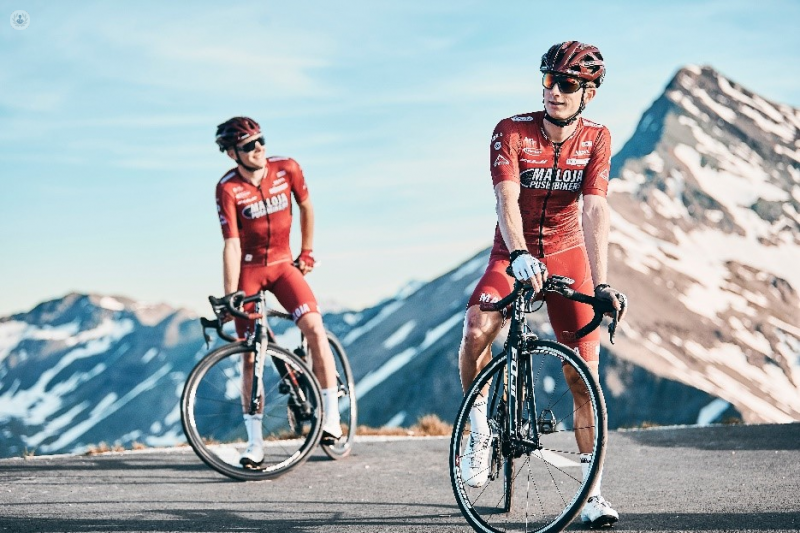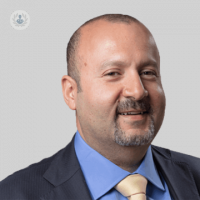What ways can I prevent injuries when cycling?
Written by:Cycling is soaring in popularity but there are large numbers of cyclists that experience physical problems and injuries which could be avoided. Whether you use a bike to commute to work, for recreation, to stay fit or in professional sporting events there are some basic safety guidelines to follow to help you avoid the most common cycling injuries. Professor Ali Ghoz tells us what they are and when you ought to seek specialist treatment.

How can I prevent cycling injuries?
- Neck, back and wrist pain - cycling causes our back and neck to bend into an unnatural position. Simple solutions, such as raising the handlebars to improve posture can help you avoid stressing the lower back muscles. Likewise, ensure that your wrists don’t drop below the handlebars, as bending the wrist like this strains the joints and muscles.
- Knee pain - Alter your bike seat to a height where your knees only bend slightly, ride in lower gears to reduce the strain on the knees and finally, position your knees straight while pedalling rather than leaning them inward or outward.
- Improve your core strength – core strength is vital in supporting your lower back in times of need. Strengthening your core muscles will not only improve your posture on your bike, but it will improve your overall strength and endurance too, allowing you to cycle for longer.
- Avoid harm – ride in the cycle lane, follow the signs and don’t skip red lights! Adhering to these simple rules can keep you safe from a sudden road collision.
- Wear the correct gear – wear the correct shoes and sports gear and ensure you have a well-padded seat to provide comfort to your genital area. Shock absorbers will offer a smoother and more comfortable ride and give you added control over the bike. Try combining this with padded gloves and shorts to protect you more.
- Wear a helmet – wearing a helmet is absolutely essential and reduces your risk of serious and fatal head injuries.
- Stretching – The main muscles at work in cycling are the quadriceps and hamstrings in the upper leg and the soleus and gastrocnemius in the calf. To avoid injury, stretching these muscles before and after a ride is essential. Some people benefit from hyperextension exercises to strengthen the lower back, and more specifically, the erector sinae – the muscle that helps to maintain correct posture.
- Make sure the bike is in good condition! – check your bike regularly for signs of deterioration that could lead to an accident. A well-maintained bike is not only a pleasure to ride, but much safer and more reliable.
- Be visible – use reflectors, lights and hi-visibility clothing at night to improve your visibility to oncoming traffic.
When should you seek treatment from a specialist with an injury?
In the presence of acute injuries, fractures and soft tissue damage you should visit a doctor to get a diagnosis and receive the appropriate treatment.
If the injury hasn’t improved and you are experiencing episodes of locking and instability, persistent pain despite receiving physiotherapy treatment or if there are any wounds and bleeding that’s not healing, you should seek attention.
If you are concerned about anything, then you should seek help. There is no need to be living in pain or putting up with any discomfort. Cycling brings so many benefits to your health; whether you’re riding for leisure, a serious professional, or training for the Tour de France, no one should be forced to give it up.
If you are suffering from a cycling injury that isn’t healing and would like to see Professor Ali Ghoz, visit his profile and check his availability.


